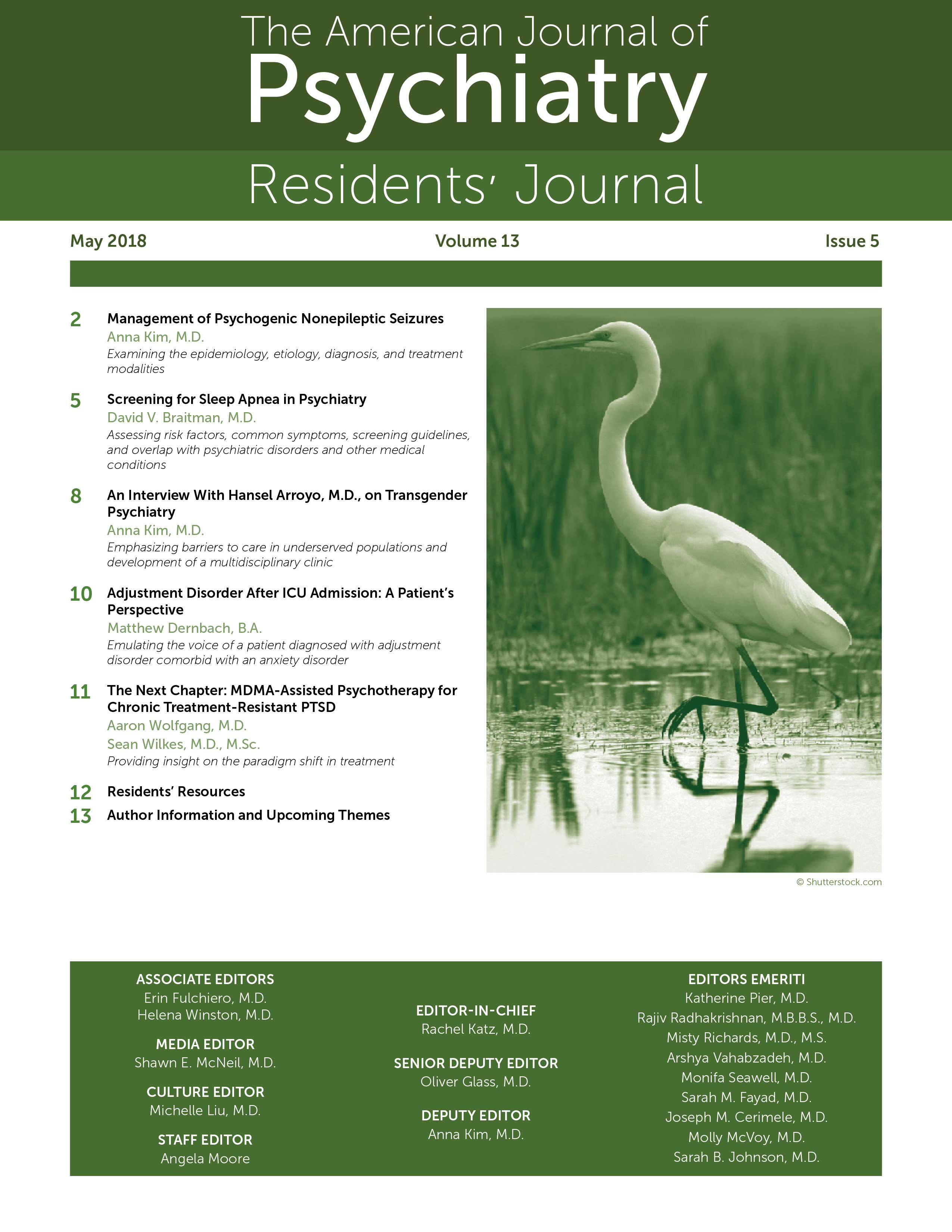The Next Chapter: MDMA-Assisted Psychotherapy for Chronic Treatment-Resistant PTSD
To the Editor: We would like to expand on the historical perspective of 3,4-methylenedioxymethamphetamine (MDMA) as described by Drs. Cooper and Kim (1) in the February 2018 issue of the Residents’ Journal. There is growing evidence pointing toward MDMA-assisted psychotherapy as a promising new treatment model for chronic, treatment-resistant posttraumatic stress disorder (PTSD).
In a pilot study funded by the Multidisciplinary Association for Psychedelic Studies, 83.3% of participants with chronic treatment-resistant PTSD achieved remission after three sessions of MDMA-assisted psychotherapy over the course of 2 months, compared with 25% of the placebo psychotherapy group (2). Remission was maintained among the treated patients after nearly 4 years. At the 2017 Psychedelic Science Conference, held in Oakland, Calif., researchers presented the unpublished results of studies examining a total of 107 participants, of whom 67% maintained remission after 1 year (3). Additionally, a preliminary meta-analysis suggests that MDMA-assisted psychotherapy may be superior to prolonged exposure therapy (4).
One major limitation of these studies, however, is the inherent transparency of the blinding. In the aforementioned pilot study, condition assignments were correctly guessed by 95% of participants and in all cases by the therapist (2). Yet in the studies sponsored by the Multidisciplinary Association for Psychedelic Studies, if the magnitude of the initial results is more rigorously upheld by the two phase-3 clinical trials currently in the recruitment phase, MDMA-assisted psychotherapy may represent the next model therapy in the treatment of PTSD.
MDMA-assisted psychotherapy was recently granted a breakthrough therapy designation by the Food and Drug Administration (FDA), and it is expected to be FDA-approved by around 2021. A significant paradigm shift for the treatment of PTSD may be just over the horizon.
1. : MDMA in psychiatry: past, present, and future. Am J Psychiatry RJ 2018; 2(13):10 Google Scholar
2. : The safety and efficacy of ±3,4-methylenedioxymethamphetamine-assisted psychotherapy in subjects with chronic, treatment-resistant posttraumatic stress disorder: the first randomized controlled pilot study. J Psychopharmacol 2011; 25(4):439–452 Crossref, Google Scholar
3. : Psychedelic compound in ecstasy moves closer to approval to treat PTSD. Nat News 2017. www.nature.com/news/psychedelic-compound-in-ecstasy-moves-closer-to-approval-to-treat-ptsd-1.21917 Google Scholar
4. : Treating posttraumatic stress disorder with MDMA-assisted psychotherapy: a preliminary meta-analysis and comparison to prolonged exposure therapy. J Psychopharmacol 2016; 30(7):595–600 Crossref, Google Scholar



